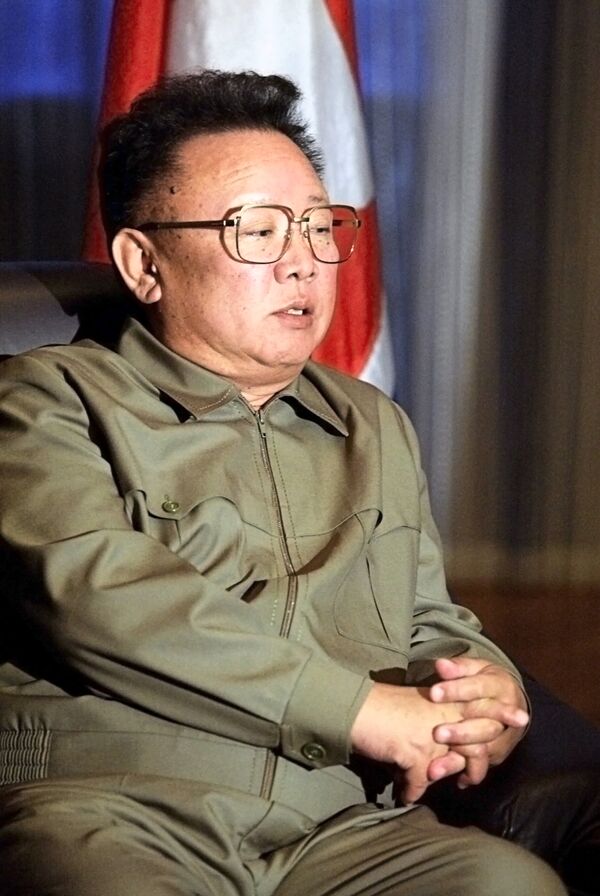This autumn, closing the 21st century's first decade, may shed some light on the looming changes of government in North Korea and Egypt. Both in the "Land of the Morning Calm," as the Koreans affectionately call their country, and in the Land of the Pyramids, the incumbent rulers are in poor health and are looking for potential successors.
In Pyongyang the North Korean leader, Kim Jong-il, has allegedly designated his youngest son, Kim Jong-un, as his heir apparent. And Hosni Mubarak's youngest son, Gamal, is tipped as the most likely successor to the 82-year-old Egyptian president.
Hosni Mubarak is a political old-timer. The Republic of Egypt's fourth president, he has been in office since 1981. The year 2011, when the next presidential election is due to take place, will mark three decades of his rule. By comparison, Soviet leader Leonid Brezhnev served for eighteen years while China's Mao was at the helm for twenty-seven years.
As for Gamal, he is currently a deputy secretary-general of the ruling National Democratic Party and he also acts as an economic advisor to his father. The 41-year-old holds a university degree in finance, economics and banking management, and is considered something of an expert on the market economy.
Nepotism may carry negative connotations in Western democracies, but the Arab world does not see anything wrong with it. In Egypt, people welcome the prospect of Gamal taking over the presidency from his father as a guarantee of stability. The example of today's Iraq has convinced other Arab nations that "a hundred years of autocratic rule is better than a day of civil war." This is a debatable point, of course, but its logic is clear. In Egypt, the choice is now between the Mubarak clan and leaders of radical Islamist movements, such as the Muslim Brotherhood. Dynastic rule, however controversial, does seem the lesser of the two evils.
Gamal's succession already looks like a done deal, but, formally at least, he will have to run an election campaign like any other candidate. A 'Popular Coalition for the Support of Gamal Mubarak' has been set up to help him through the 2011 presidential race, and it is already canvassing voters.
In Pyongyang, meanwhile, the situation is more complicated. We can speculate about the future in what is arguably the world's most secretive country, but we can never be sure that our guess has been proved right. The incumbent North Korean leader is now 68 years old, and ailing. Western observers have been predicting his "imminent" departure for the last five or six years, yet he remains. In his speech at a recent Senate hearing, Kurt Campbell, U.S. Assistant Secretary of State for East Asian and Pacific Affairs, described North Korea as a "black box" and lamented that American intelligence reports on the reclusive regime are often inaccurate. When asked by Senator John McCain whether the U.S. Administration expected Kim Jong-un to replace his father, Campbell quipped: "Your guess is as good as ours, Senator."
That said, however, some signs of change can be discerned on the North Korean horizon. On September 28, the ruling Workers' Party of Korea (WPK) is due to hold a national congress in Pyongyang. The last time the party held a conference on such a scale was exactly three decades ago. At its 1980 congress, then President Kim Il-sung officially presented his successor, Kim Jong-il. However he did not take over immediately. He only become North Korea's head of state on his father's death in 1994, having spent the preceding fourteen years working his way up the government ladder.
Kim Jong-il is likely to approach the succession issue just as his father once did. Even if he presents his son to the WPK gathering as his heir apparent later this month, the designated helmsman-in-waiting may spend years rising through the ranks.
North Korea's society is no longer as homogeneous as it was under Kim Il-sung. The country is now suffering from acute economic problems, food-supply problems and international isolation. The seeds of discontent seem to be growing among the masses. But developments in the Communist state, with its charted course of "self-reliance," (Chuch'e ideology) cannot be predicted with any degree of certainty based on conventional political standards. And then again, you never know what is on the willful Kim dynasty's mind.
It is thought that Kim Jong-un is now 28-29 years of age, and that he was formally educated in Switzerland. Portraits of the heir apparent have print runs approaching the millions in Korea, and the country's army is being taught songs with lyrics celebrating the "glorious son." The message Pyongyang authorities are trying to get across ahead of the landmark WPK congress is that the passage of power from father to son will protect North Korea from political upheavals like those that struck the USSR and China.
Dynastic rule in fact seems surprisingly appealing. Not least because of the safeguards it offers against the trials and tribulations of a change of government.
Current Libyan leader Muammar Gaddafi, 66, came into power some forty years ago, and is now preparing for his eldest son, 38-year-old Seif al-Islam (meaning 'sword of Islam) for succession. The young man currently holds a number of senior positions in Libya's national government.
In former Soviet states with a historically Muslim majority, dynastic rule is not unheard-of. Azerbaijan, where President Heydar Aliyev was succeeded by his son, Ilkham, is just one example. In Uzbekistan, Islam Karimov's 38-year-old daughter, Gulnara, has increasingly high popularity ratings and could well take over the presidency. A one-time Uzbek deputy foreign minister and ambassador to the UN, she is now serving as her country's ambassador to Spain. In Kazakhstan, President Nursultan Nazarbayev's eldest daughter, Dariga, looks well placed to take on the country's top job. She already controls the Kazakh media scene, and leads her own political party.
RIA Novosti political commentator Andrei Fedyashin
The opinions expressed in this article are the author's and do not necessarily represent those of RIA Novosti.



